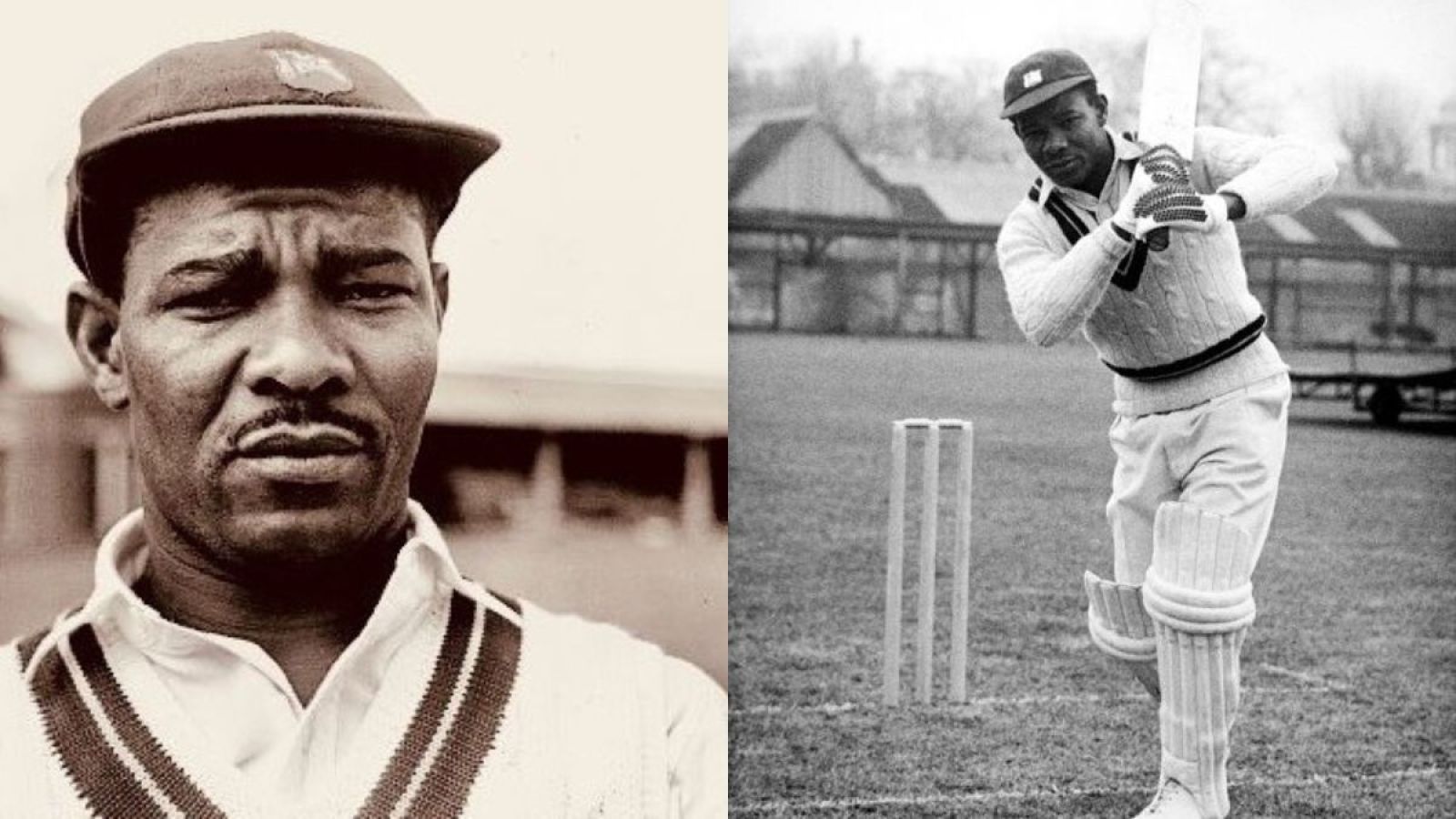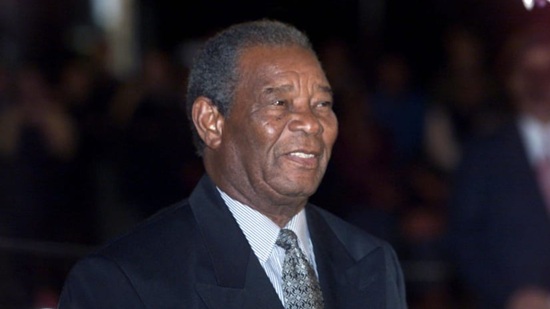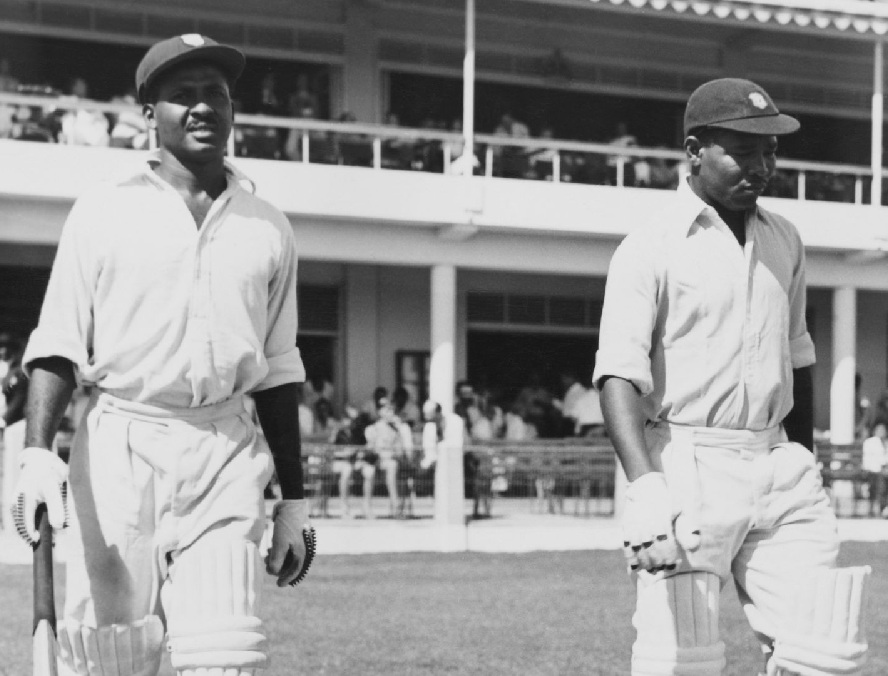
Tags: West Indies, Sir Everton Weekes
Today (February 26) marks the 100th anniversary of the birth of Everton DeCourcy Weekes. That makes it a very special day in Barbados and West Indies history – for Weekes was a classy and artistic batsman, who rose from humble beginnings to be celebrated around the world as one of the most heralded gentlemen to ever play the game of cricket.
He was one of the admired pioneers of the “Golden Age” in West Indies cricket and was one of the early sporting heroes. As a member of the incomparable 3Ws – joined by Frank Worrell and Clyde Walcott – the trio who revolutionized the approach to batting; how runs should be compiled and how the game was celebrated, Weekes wrote his name in history’s page with his groundbreaking batting feats. In a pre-Independence era where opportunities were few and access was restricted, Caribbean men and boys saw mirror images of themselves as they found their feet and their voices and could also see first-hand the heroes who inspired them, and who they could admire, salute and emulate.
Among those West Indian sons who aspired to be Weekes, was a young Clive Lloyd, who honed his cricketing skills in a pre-independence British Guiana. For Lloyd and many other teens around the region, Weekes & Co. were their real-life super heroes.
“I have always had a great respect and admiration for Sir Everton. He was a truly wonderful person and one of the standard bearers in our cricket over the storied history of West Indies cricket. I always sought his counsel on cricket and other matters, many a time when I was West Indies captain and he always offered wise advice. When you speak of Sir Everton, when you speak of the Three Ws, at Lords in 1950 … and all their heroics. You speak about how they represented us and showed the world we were top-class cricketers and gentlemen, who kept our cricket alive. At the time we were less than five million people, and they brought great respect to the West Indies,” Lloyd said.

“Sir Everton was a wonderful speaker and shared many stories on the game. He was an extraordinary cricketer. He was a genius and when you look at where he came from and what he had to go through, he still managed to forge an excellent career and was a proud West Indian who brought immense respect to us as Caribbean people. As West Indies captain, my team walked onto the field with confidence and self-belief, knowing that we were carrying on the legacy of our pioneers like Sir Everton Weekes.”
Weekes was born a short distance from Kensington Oval and found his footing in cricket from an early age. He passed away on July 1, 2020. His memorial service was at the Oval. In February 1945, two days before his 20th birthday, he made his first-class debut for Barbados against Trinidad. His first hundred came against British Guiana at Bourda in September 1946.
His Test debut for the West Indies came at the Oval in January 1948 against England and he played his last match in March 1958 against Pakistan in Trinidad. He played 48 Test matches and made 4455 runs at an average of 58.61, including 15 centuries. His breakthrough came in March 1948 when he hit 141 in his sixth Test innings, the start of one of the most extraordinary periods of batsmanship in the game’s history. Later that year in India, he made 128 at Delhi, 194 at Bombay, then 162 and 101 at Calcutta – five successive Test centuries.
After retirement, Sir Everton continued to contribute to the game in various roles. One was as a knowledgeable commentator and analyst for which he was respected and revered. He also mentored many players at his beloved Empire Club in Bank Hall and around the island and the region.

Wisden Almanack described his play in the 1950 edition. “Weekes possessed in full measure those gifts which are the hallmark of all really great batsmen - exceptional quickness of eye and foot - so that he always had more than average time to make his strokes. Correct and sound in defence, he was extremely punishing in attack and showed special strength in strokes off the back foot. Despite his short stature, strong forearms and wrists enabled Weekes to cut, pull and drive tremendously hard, and seldom did he lift the ball”.
Scyld Berry, the former Wisden Editor saluted Sir Everton with a fitting tribute. He described the great man as one of the game's exemplars. “Of very few can it be said that he was a top-quality cricketer, a top-quality commentator, and a top-quality human being. But Sir Everton Weekes was one …. above all, Sir Everton remained a wonderful human being”, he wrote when Weekes died in July 2020.
“Worrell was famous for the beauty of his strokeplay, Walcott for his power. Weekes was the first batsman to score five Test centuries in consecutive innings, and to date the only one. Weekes possessed in full measure those gifts which are the hallmark of all really great batsman – exceptional quickness of eye and foot. Weekes was never one to blow his trumpet: quite the opposite, he was the most unassuming of great cricketers. May the sea breezes blow gently over his grave beside Sir Clyde and Sir Frank”.
Philip Spooner is a former Head of Media for Cricket West Indies and Global Media Manager for the ICC Men’s T20 World Cup
LATEST STORIES
West Indies Left-Hander Nicholas Pooran Is Redefining T20 Batting
- 2025-04-10 05:50:03
- Hits 842
Trailblazer Roland Butcher shares his story and tells history new biography
- 2025-04-10 11:27:59
- Hits 211
CWI CEO Chris Dehring Commends Grenada’s Investment in Cricket Infrastructure
- 2025-04-10 10:15:04
- Hits 175
